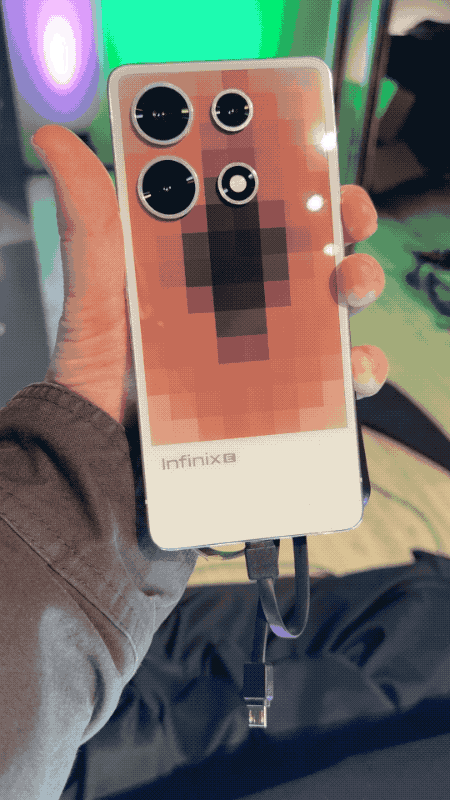The back of your phone is useless. There. I said it. Sure, the cameras are back that, but what about all of that blank real estate monopolizing 90% of the surface area? Honestly, it needs to start carry its weight around here. A fully functioning screen isn’t the answer, however. That’s a lot more battery drain, a thicker design and a much higher price tag – for what, exactly?
The notion of a secondary e-ink screen is not a new one. Yota Phone did that years ago. Ultimately, however, the company declared bankruptcy in 2019, four years after releasing its second device. By then, foldable devices had already been on the market for a couple of years, rendering the innovation as little more than a passing novelty.
The Infinix E-Color Shift improves upon Yota’s phone somewhat, by adding color to the mix. It is not, however, the full low power secondary display the earlier device promised. Rather, it’s more a fun aesthetic addition to the part of your device that is nearly always covered by a case, your hand or otherwise face down a table.

Image Credits: Brian Heater
The surface isn’t proper e-ink, and certainly not capital “E” E-Ink. The company describes the technology thusly, “By applying different voltages, the electric field within the microstructure changes, causing the corresponding color particles to move and display the desired colors. This innovative approach allows the phone’s shell to change ‘skins’ at will, maintaining the display without consuming power.”
The tech actually debuted at CES last month, but I was sick in bed with Covid, so I’m telling you about my experience with E-Color Shift here at MWC in Barcelona. Having played around with it a bit, it behooves me to mention that this is the prototypiest of prototypes. Not only are not talking about an actual product here, the tech Infinix was showcasing required the dummy unit to hooked up to an external battery pack.
Like e-ink, however, the back panel does have the advantage of holding a static image even when the battery isn’t putting in the work.
It remains to be seen whether this gets licensed by a third party or simply shows up on an Infinix device. My guess is the Hong Kong company is hoping for the latter, as it’s hard to imagine too many people purchasing a smartphone based on this technology alone. For one thing, it doesn’t really do much.
For another, as mentioned above, it’s probably going to be covered in some shape or form 99% of the time, save for those rare occasions when you want to show a friend the weird thing your phone does.

techcrunch.com




